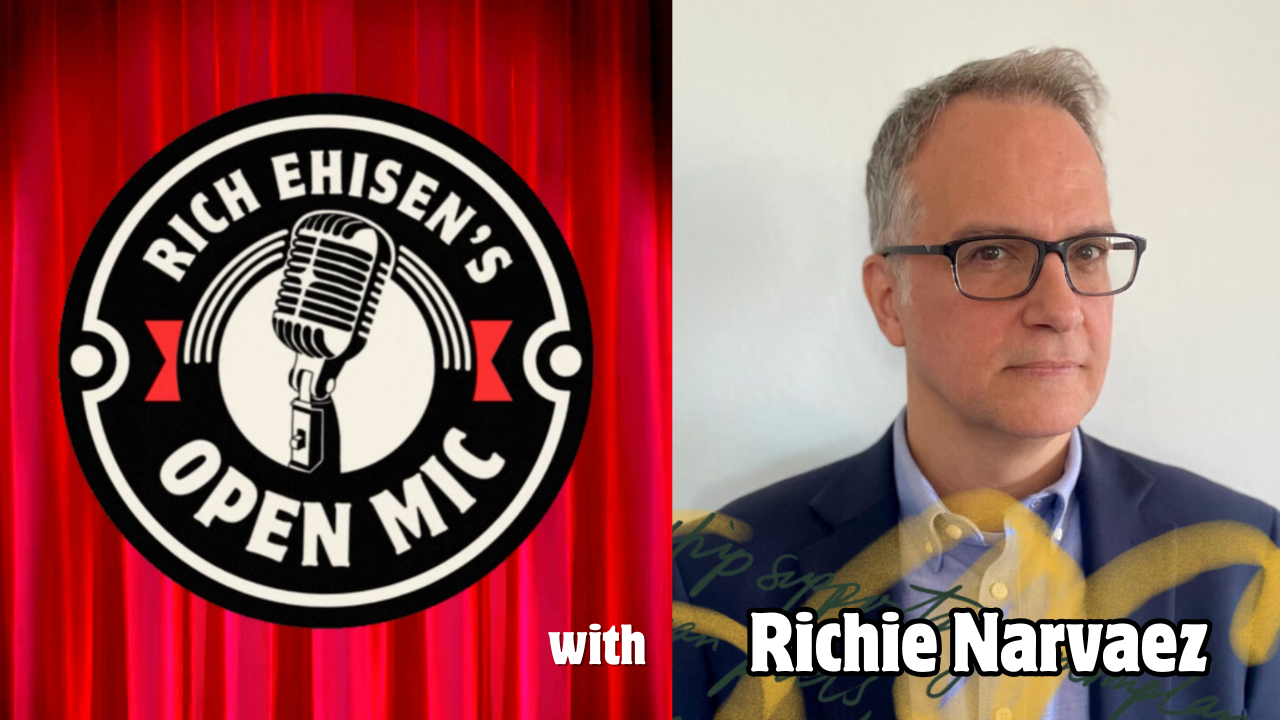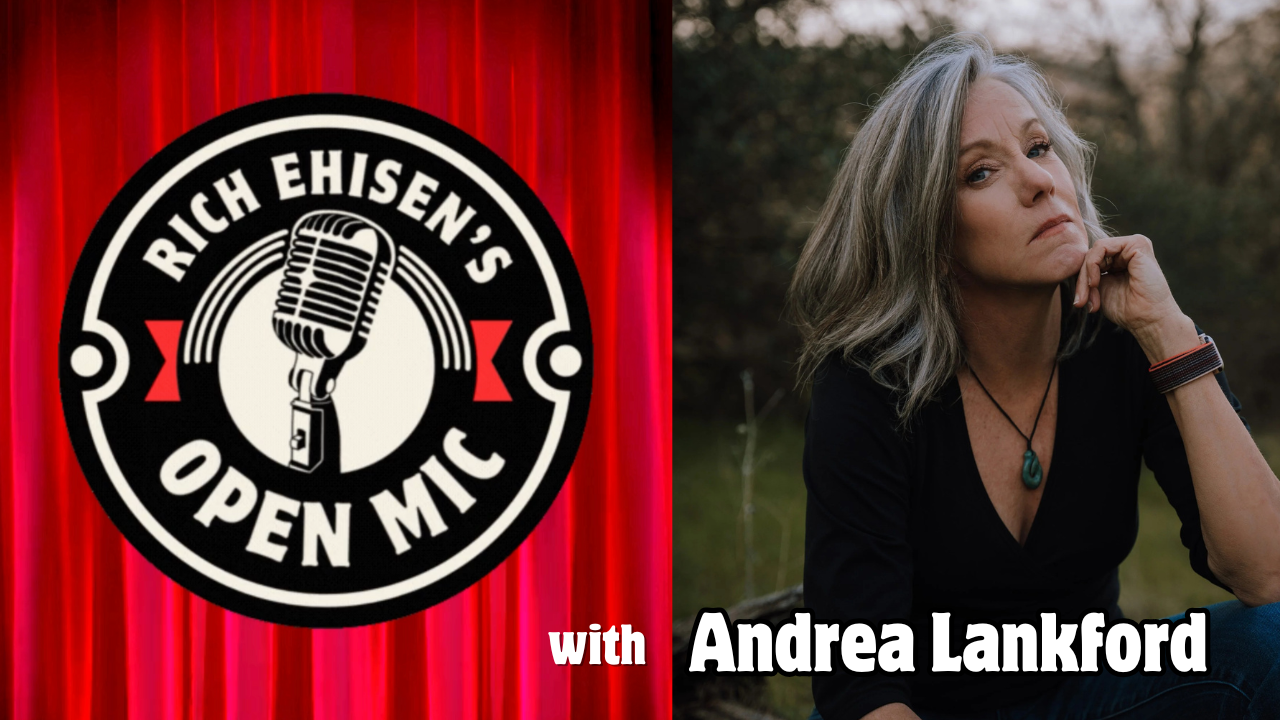Fans of Orson Scott Card’s online magazine the Intergalactic Medicine Show know it is a place where they can always find some of the best science fiction and fantasy writing there is. But while Card has the name appeal, since 2006 the magazine’s primary editing has been the work of Edmund Schubert. An outstanding writer himself, Schubert is the author of one novel (Dreaming Creek) and more than 50 published short stories, many collected in The Trouble with Eating Clouds. Schubert recently shared some thoughts on the industry, the SFF genre and being quirky.
RE: Your education and professional background is in business. What sparked you to take up writing?
Schubert: I’ve been a book worm my whole life. In the second grade my teacher would bribe me to do my math by offering me books as soon as I finished adding and subtracting. She knew I was capable of doing the math, I just needed motivation. And nothing motivates me quite like books. Writing was just the logical next step in that evolution. The business background is because my father never thought that anything ‘creative’ was viable as a career option. He wanted me to able to support myself and my future family. Somehow I managed to end up as a starving artist anyway. It was a good try, though, dad.
RE: Have you always read a lot of fantasy or science fiction? Who were your big inspirations?
Schubert: I don’t know why, but I have always been naturally drawn to the fantastic. Going back to the second grade, the two books my teacher kept in her desk were Tales of Magic and Mystery to Read Aloud and Nature Stories to Read Aloud. I wore that first book out. Don’t know that I ever read the second one all the way through.
I would say today that a) I like the metaphors that are possible with science fiction and fantasy. It can be an effective way of exploring aspects of human nature that would be less well-received if stated too directly. That’s part of the thinking behind the anthology (working title Dilemma Fantastique) that I’ll be editing next year for the small press Silence in the Library: talking about difficult subjects obliquely, so as to slip past readers’ natural defenses. And b) I like the fantastic because I live in the real world, surrounded by real-world problems and relationships and conundrums. Reading about more of the same is, well… more of the same.
That being said, as much as I love the speculative genres, my all-time top writing inspirations are John Steinbeck, F. Scott Fitzgerald, and Mark Twain. I’m also a big fan of Poe, and the poet Billy Collins. Within the genre, my inspirations are Ray Bradbury as a writer, and Richard Matheson as a story-teller (two very distinct skill-sets).
RE: The publishing industry has changed so much over the years. How do you see the industry these days? What perhaps are the best and worst elements of publishing right now?
Schubert: The best and worst elements of the publishing industry are the self-publishing movement and the self-publishing movement. The good news is that it’s easier than ever to get a book published and more people than ever are writing them. The problem is that it’s easier than ever to get a book published and so many people writing them. At least there’s plenty of help available; all of those people who’ve written and published all of those books? They all have blogs detailing how to succeed like they have. It’s an awesome/awful/out of control/amazing/unbelievable opportunity. It’s the Wild Wild West of words, and Amazon is The Okay Corral.
RE: SF and Fantasy seem to be stronger and more popular than ever. Readers are really passionate about each of these genres and often have very distinct views on what books and stories ought to look like. Does that help or hurt you in your role at IGMS?
Schubert: People have always had distinct views on what the genre should or shouldn’t be, do, and talk about. I do my best to publish a diverse range of stories (both as a writer and an editor), but trying to cater to the full spectrum would be a big mistake.
This summer there was a HUGE kerfuffle (is that an oxymoron?) surrounding the Hugo Awards. The Hugos are one of the two main awards in our genre (the other being the Nebulas). The Nebulas are voted on by other writers and is more of a peer-to-peer award. The Hugos are voted on by the fans, and this year a vocal minority who said they felt their tastes were being marginalized succeeding in taking over the nominating process and stack the finalists with their slate of favorites. People on the other side of the argument said they were doing so for self-serving reasons only, and the whole thing got quite ugly.
Though I didn’t know anything about the underlying politics until well after the fact, I was one of those people who was nominated this year. Once I had a more complete picture of what was going on I withdrew my name from the whole sorry affair, so politics cost me a clean shot at one of the biggest awards in our genre. Does that constitute ‘helping or hurting my role at IGMS’? I guess it does both.
RE: You’ve previously likened your writing to an episode of the Twilight Zone. Do you still feel that way?
Schubert: I had gone a long time—too long, really—where the editing aspect of my job shunted the personal writing aside. I found it challenging, after spending all day with other people’s characters running around in my head, to set that aside and let my own characters loose. I also have a devil of a time shutting down that internal editor who’s always shouting ‘That could be so much better!’ He’s given free-reign all day and will not ever quietly go away.
But recently I was able to take a five-month hiatus from editing and instead read for fun—recreational reading!—and write some new short stories. It was glorious, and one of the things I noticed was that while I sensed my writing definitely improved—you can’t read/edit as much as I do and not clarify your thoughts as to what works, what doesn’t, and why—I was pleasantly surprised to see that the kinds of tales I wrote still fell into that general category I’d call Twilight-Zonish. This pleases me, because I think the very best of the Twilight Zone episodes have something to say about human nature, how we interact with each other, and how we think about ourselves when we’re being still and quiet enough to be honest with ourselves about it.
RE: You’ve published dozens of your own short stories and of course you edit the InterGalactic Medicine Show. What makes for a great short story?
Schubert: I was recently asked to come up with a list of traits that I thought constituted the ‘ideal’ IGMS story, so I’m going to be an efficient writer and recycle my list here, because my ‘ideal IGMS story’ is really just another way of saying my ideal story. You’ll note that there’s nothing on this list that require anything to be science fiction or fantasy. (The primary thing that differentiates science fiction or fantasy from other genres is that true SF or fantasy has an element of either speculative science or magic without which the rest of the story can’t be told. Frankenstein is often cited as being the forerunner of all science fiction because without the ‘science’ of reanimating corpses, there is no story. Frankenstein as we know it can’t be told without it, regardless of whether the ‘science’ is possible or not.)
The Ideal (IGMS) Story:
- Knows and shares with the reader what it’s about, promptly (within the first few paragraphs; no more than the first page or two), properly establishing expectations
- Doesn’t dawdle in preliminary description, but gets on with the story
- Knows the difference between suspense and artificially withholding information, creating the former while avoiding the latter
- Prose doesn’t try to dazzle me with how pretty it is; instead with direct language, it uses thoughtfully selected metaphors, similes, and analogies to bring it to life
- Has something to say about human nature but doesn’t preach
- Is not afraid to be dark, is not afraid to have fun; ideally a touch of both
- Understands and demonstrates the power of obliquity
- Surprises the reader without leaving the reader feeling cheated or lied to
- Has an emotional impact
- Delivers in the end on the promises it made at the beginning
RE: Who are some of the really good underappreciated writers out there today?
Schubert: Within the genre, I’d say that the first name that springs to mind is James Maxey, who writes some of the best stuff you’ve never heard of. Short stories and novels, traditionally published and self-published, science fiction masquerading as fantasy, social commentary masquerading as super hero novels: James is an exceptional writer and I’m just waiting for the rest of the world to notice.
I would also add Jamie Todd Rubin to the list of names to watch. He’s not as far down the career path as James Maxey, but he’s very quietly paying his dues, studying his craft, and writing his million words. He hasn’t ‘popped yet,’ but when he does I expect it to be something special to behold.
RE: You’ve described your first novel, “Dreaming Creek,” as a mystery/suspense novel with a paranormal twist. You followed that up with your short story collection, “The Trouble with Eating Clouds.” Can we expect a follow-up to either one any time soon?
Schubert: I’ve edited several short story collections since those two books came out, as well as editing and contributing to a non-fiction book that I’m very proud of (How to Write Magical Words). I’m currently working on that anthology about moral dilemmas (the one I mentioned earlier; very excited about that project), so while I hadn’t written a lot of new material of my own for several years, I have been productive in other ways.
However, with the three or four new short stories I’ve written that are being published this year, plus a few others in the works, I think I’m close to having enough material for a second short story collection (maybe for 2016).
I also have two teenagers at home and I promised them I’d write something specifically for them, so I’m about 20,000 words into a YA novel (An Eye of Heartstone) which I’m hoping to have ready for next year, too. The hiatus from editing did me a world of good as far as jump-starting my creativity and it feels wonderful to be writing my own stuff again.
RE: You seem to revel in being a little…quirky? How much does that play into your writing?
Schubert: If you’re going to be quirky, you might as well revel in it; there’s no point in closet quirkiness.
In all seriousness, it’s just who I am, and I’ve learned time and time again that if you are true to who you are, really embrace it, life is better. When you try to hide or modify who you are, or pretend to be someone you’re not, it’s exhausting and unfulfilling. Why choose exhausting and unfulfilling, when all that’s required for ‘better’ is to accept yourself for yourself?
As for how it plays into my writing, I have noticed a correlation between how much fun I have writing something and how well it’s received by those who read it. And I don’t mean only those things that are light or fun to read. Earlier this year I had a story published in an anthology filled with stories written from the point of view of the traditional ‘bad guy.’ The antho is titled Big Bad 2 and my story is called “Feels Like Justice to Me.” I already had had the basic idea and was planning to write it from a more traditional POV, but when I heard about the antho’s theme and realized it wouldn’t be too difficult to write it instead from the antagonist’s POV, I shifted gears. Naturally it’s a dark story, but I found it eminently fascinating to wear this guy’s skin and think with his brain as he justified and rationalized his actions. I do feel a little guilty calling it ‘fun’ but honestly that’s what it was, and it’s one of the best stories I’ve ever written. And I’m not blowing my own saxaphone when I say it’s a strong piece: the antho’s lead editor has talked about numerous awards he wants to nominate it for.
At the other end of the spectrum, I did an interview several years ago (written, like this one) where I claimed entirely straight-faced to have gotten the job as editor of IGMS when I was in Antarctica filming a documentary for the BBC about the mating habits of snowflakes and met Orson Scott Card at McMurdo Base when he stopped by for a book-signing and ended up arm-wrestling with him over eating-rights to the last roasted penguin, so… yeah, I guess ‘quirky’ is an accurate word to describe me. Life is too short to take too seriously.
RE: Every writer has their own way of building stories and characters. What is your development process like?
Schubert: I actually have several processes for developing stories, and I don’t select them; they dictate their own emergence.
Method #1 is the easiest and my favorite: I run into an idea somewhere, be it in the movies or a magazine or even in another story, and it launches my thought-process. ‘What a fascinating tidbit,’ I say to myself. ‘How can I use that?’ ‘What a really cool piece of technology, how can I use that?’ ‘What a really quirky character (or trait), how can I use that?’ And then I’m off and running.
I like those best, because generally those kinds of thoughts tend to come with questions and complications and, most importantly, some idea of a possible ending. I’ve always struggled with stories that I started without any idea whatsoever about what the ending would look like. As long as I have a clue-of-a-hint-of-a-thought of an ending, I’ll find my way through. But no ideas for an ending frequently mean the story dies on the vine.
That trouble I have with endings is why I cringe when method #2 of story development occurs: the voice; the opening line. I’ll hear a character’s voice, or come up with what sounds to me like a compelling opening line. The problem is that when I try to write those stories, I frequently hit a wall, one which I cannot move past. If I’m lucky I’ll find a way to incorporate the voice with some idea I have sitting on the shelf, and those tend to work out best of all. But they are also the rarest, so…
Mashing things together seems to be my new big thing. The novelette I just finished is made up of several ideas I’d been trying to figure out how to use separately, but when I bumped them up against each other they made a very interesting noise. I’m quite pleased with the results, and expect to be doing a more of that in the future.
I suppose it means that my process is developing as I develop as a writer. And I’d call that a good thing. Writers should be growing and evolving.
RE: Any words of wisdom for aspiring writers?
Schubert: Read. Write. Read. Write. Read. Read. Write. Read. Write. Read. Read. Read. Write. Write. Read. Write. Read.
Lather, rinse, repeat.
Make sure you have fun while doing so. Keep growing and evolving. Eat your vegetables. (The quirkiness will take care of itself. There isn’t a writer out there who doesn’t have an ounce or two of quirk in his or her soul…)



